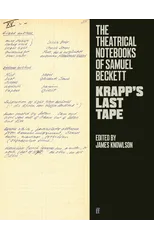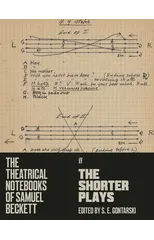Edited by C. J. AckerleyWritten in Roussillon during World War Two, while Samuel Beckett was hiding from the Gestapo, Watt was first published in 1953. Beckett acknowledged that this comic novel unlike any other ‘has its place in the series’ – those masterpieces running from Murphy to the Trilogy, Waiting for Godot and beyond. It shares their sense of a world in crisis, their profound awareness of the paradoxes of being, and their distrust of the rational universe. Watt tells the tale of one who comes to serve Mr Knott, but must leave when his time is up, still knowing nothing of his master. Watt’s mistake is toderive the essence of his master from the accidentals of his being, and his painstakingly logical attempts to ‘know’ ultimately consign him to the asylum. Itself a critique of error, Watt has previously appeared in editions that are littered with mistakes, both major and minor. The new Faber edition offers for the first time a corrected text based on a scholarly appraisal of the manuscripts and textual history.So that what with one thing and another, and with Watt’s not wishing this,and with Watt’s not wanting that, it seemed that Watt, as he was then, couldnever get into Erskine’s room, never never get into Erskine’s room, as it wasthen, and that for Watt to get into Erskine’s room, as they were then, Wattwould have to be another man, or Erskine’s room another room.
Samuel Beckett
Samuel Beckett was an Irish playwright, novelist, and poet known for his minimalist and absurdist style. He is best known for his play "Waiting for Godot," which explores themes of existentialism and the human condition. Beckett's works often feature bleak and dark humor, as well as a focus on the futility of human existence. His contributions to literature have had a significant impact on the genre of absurdist theatre and have influenced countless writers and artists. Beckett was awarded the Nobel Prize in Literature in 1969 for his groundbreaking work in the field.




